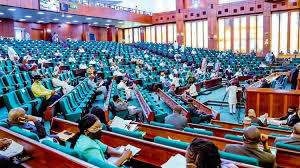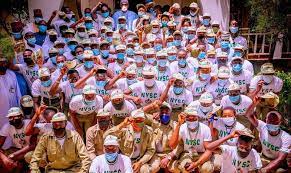The casualty ravaging the world arising from the coronavirus (COVID-19) may gradually be on the decline following the development of vaccines against the pandemic. In the last few months, economies have been seriously shut down, many people have been killed by the pandemic, the use of face masks has become the ‘new normal’ while perpetual fear has remained part and parcel of our daily lives. While concerted efforts are being made to tame the novel virus at the individual and corporate levels, what has rekindled the hope of many people is the development of vaccines that could serve as the needed weapon to nip COVID-19 in the bud.
It was, therefore, a thing of joy that the road to defeating the virus is getting smoother by the day, but this is not without some contending issues that should be looked into by relevant authorities without delay. To start with, there have been reported cases of adulterated or fake vaccines in the market. This appears to be the most dangerous matter as far as the availability of the vaccines is concerned. Not only that, the way and manner that the few doses of the vaccines would be administered should attract public attention. The reason for this is that it was reported that the quantity of the vaccines to be made available to the country is meagre. We recall that during the 2009 swine flu pandemic, high-income countries bought up all the available vaccine stocks, but poorer countries could not access the vaccines several years thereafter.
No doubt, the serious threat from COVID-19 makes vaccination challenging and serious, most especially when the demand for doses far surpasses supply; there is the temptation for people to naturally focus on their immediate interests at variance with what transpired a few months back when the pandemic appears to bring an unusual sense of solidarity because, but with the huge financial burden of procuring vaccines today, everyone appears to fend for themselves. The truth is that the COVID-19 pandemic has caused so much apprehension and anxiety that the distribution of vaccines was supposed to bring succour while the failure to douse the tension and put in place solid plans would certainly create more anxiety.
The efforts of state governments to complement that of the Federal Government in the procurement of vaccines are commendable. This intervention should not be taken hook, line, and sinker without adhering to necessary regulation and due diligence. This concern is further fuelled by the disposition and contempt often displayed by some governors when it comes to following rules. Many of the governors behave as if they are all-in-all considering the enormous powers vested in them by the constitution. This impunity should be discouraged. The states should be monitored more closely. The memory of what transpired in 2003 in five states under Northern Nigeria cannot be easily forgotten when they boycotted the immunisation campaign for oral polio vaccine due to fears that it was unsafe. Even though it is difficult to ascertain or prove the veracity of these claims, the right thing to do by the government is to dispel the myth and adequately educate the people on the likely consequence of their ‘ignorance’ and why they should embrace the vaccination.
Proper handling of the vaccines is also key. As a chain process covering transportation, storage, and retrieval, those saddled with these duties should be properly trained and equipped to handle the assignments. The required infrastructure should be provided to preserve the potency and to safeguard our health workers from the hazards of work. This makes it ever imperative, the patriotic call for proper funding and remuneration of health workers. Effective monitoring should be accorded priority. This is to ensure that in the event of any reactions or side effects occasion by the administration of the vaccines, health professionals can fully take control as was the case when 23 people died in Norway within days of receiving their first dose of the vaccines. People should be monitored for any reactions such as fever, nausea, severe pain at the injection site and allergic conditions, among others.
Fighting COVID-19 successfully requires a combination of several factors without leaving out any prescribed regulations. While the availability of vaccines is a positive development and a manifestation that we are fast moving towards curtailing the pandemic, other non-pharmaceutical measures should not be abandoned. It is instructive to note that some virologists have even advised against the procurement of COVID-19 vaccines at the moment, saying it is unnecessary to introduce vaccines to Nigerians at this period on the premise that 70 percent of the country’s population can develop antibodies against the virus. In the final analysis, despite the prospects of vaccines and vaccination, it is important to always keep avoiding crowds, maintain social distancing, wash hands regularly and use alcohol-based sanitisers, and never fail to wear face masks and to report strange feelings to relevant health authorities. What we need to defeat the deadly virus is peoples’ collective will, support, cooperation, and discipline.




